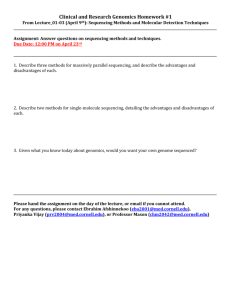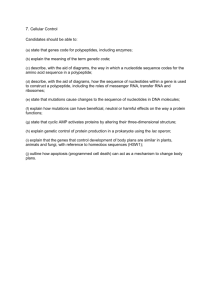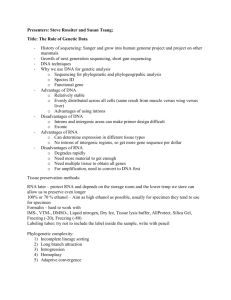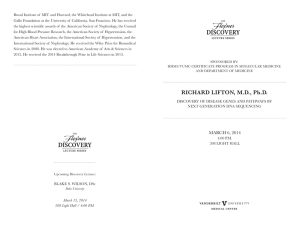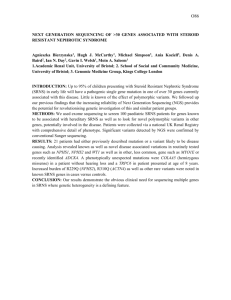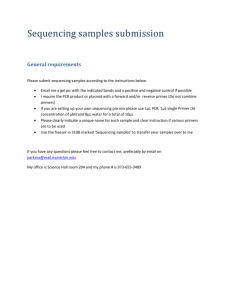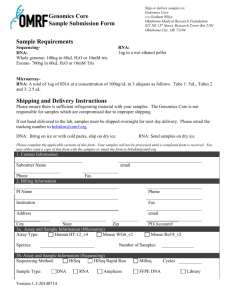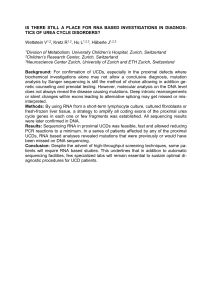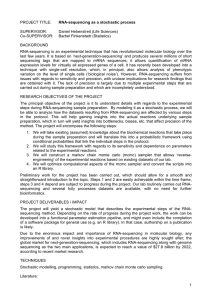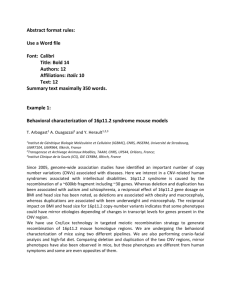Problem Set 03
advertisement
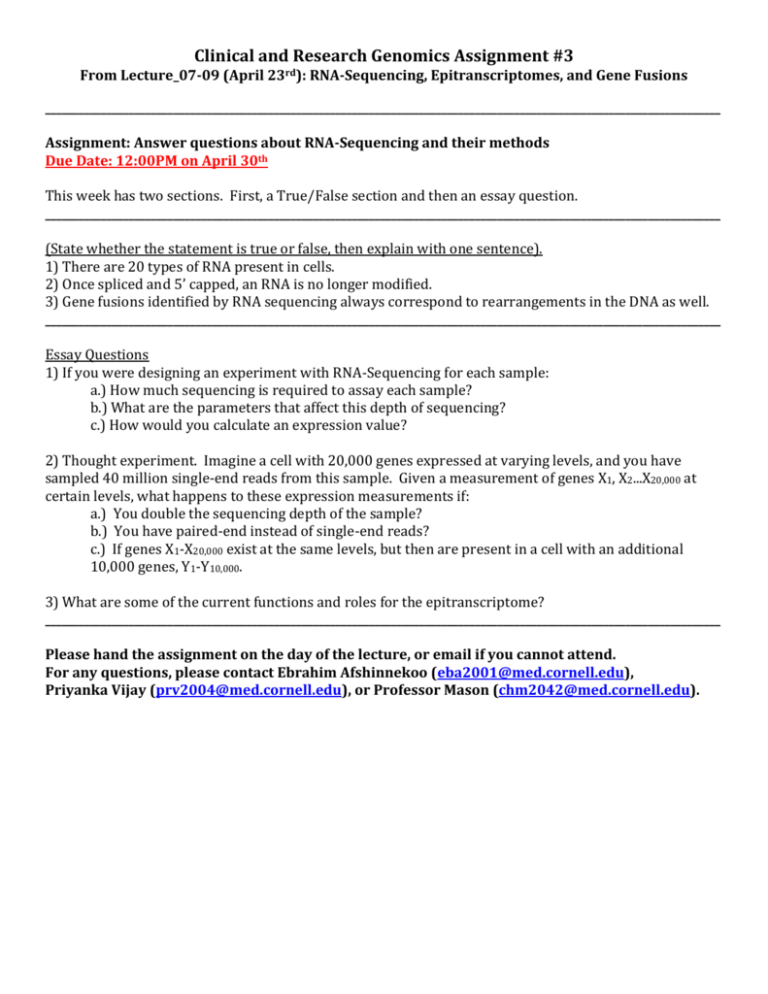
Clinical and Research Genomics Assignment #3 From Lecture_07-09 (April 23rd): RNA-Sequencing, Epitranscriptomes, and Gene Fusions _________________________________________________________________________________________________________________________ Assignment: Answer questions about RNA-Sequencing and their methods Due Date: 12:00PM on April 30th This week has two sections. First, a True/False section and then an essay question. _________________________________________________________________________________________________________________________ (State whether the statement is true or false, then explain with one sentence). 1) There are 20 types of RNA present in cells. 2) Once spliced and 5’ capped, an RNA is no longer modified. 3) Gene fusions identified by RNA sequencing always correspond to rearrangements in the DNA as well. _________________________________________________________________________________________________________________________ Essay Questions 1) If you were designing an experiment with RNA-Sequencing for each sample: a.) How much sequencing is required to assay each sample? b.) What are the parameters that affect this depth of sequencing? c.) How would you calculate an expression value? 2) Thought experiment. Imagine a cell with 20,000 genes expressed at varying levels, and you have sampled 40 million single-end reads from this sample. Given a measurement of genes X1, X2...X20,000 at certain levels, what happens to these expression measurements if: a.) You double the sequencing depth of the sample? b.) You have paired-end instead of single-end reads? c.) If genes X1-X20,000 exist at the same levels, but then are present in a cell with an additional 10,000 genes, Y1-Y10,000. 3) What are some of the current functions and roles for the epitranscriptome? _________________________________________________________________________________________________________________________ Please hand the assignment on the day of the lecture, or email if you cannot attend. For any questions, please contact Ebrahim Afshinnekoo (eba2001@med.cornell.edu), Priyanka Vijay (prv2004@med.cornell.edu), or Professor Mason (chm2042@med.cornell.edu).
